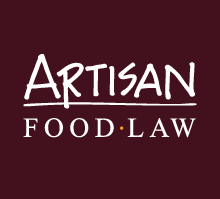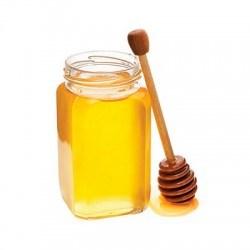Pollen is to become a natural constituent of honey!
Yes, you heard it right! The EU Commission is proposing an amendment to the honey Directive 2001/110/EC to define pollen as a natural constituent of honey – it will no longer be an ingredient.
In a judgement delivered in September 2011 the European Court of Justice decided that pollen was an ingredient of honey and not, as common sense suggests, a natural constituent. The case before the Court concerned Mr Bablok, an amateur beekeeper, whose bees produced honey close to a number of plots owned by Freistaat Bayern on which Monsanto’s MON 810 maize was being cultivated. Mr Bablok’s bees also produced pollen used and sold as a foodstuff in the form of a food supplement until 2005.
In 2005 MON 810 maize DNA and genetically modified proteins were detected in the pollen harvested by Mr Bablok. The beehives were located 500 metres from the MON 810 maize crop and very small amounts of MON 810 maize DNA were also detected in samples of Mr Bablok’s honey. Mr Bablok sued Freistaat Bayern for making his products unsellable.
It was common ground between Mr Bablok and Freistaat Bayern that the pollen in question had lost all its ability to reproduce. The German court which heard Mr Bablok’s case decided it needed the assistance of the European Court of Justice and requested a preliminary ruling on a number of questions.
Monsanto, which successfully intervened in the proceedings, and Freistaat Bayern sought to argue that authorised natural contamination had occurred. Furthermore, the pollen no longer possessed any capability to reproduce and the mere presence of transgenic DNA and/or transgenic proteins is not sufficient to make it a genetically modified organism within the meaning of Regulation (EC) 1829/2003. Finally, if Regulation (EC) 1829/2003 applies, authorisation for placing the honey on the market is only required where the threshold of 0.9%, the limit set by Article 12(2) in respect of labelling, is exceeded.
The Court of Justice considered these arguments and made the following rulings:
- The concept of a genetically modified organism within the meaning of Article 2.5 of Regulation (EC) 1829/2003 must be interpreted to mean that a substance such as pollen derived from a variety of genetically modified maize, which has lost its ability to reproduce and is totally incapable of transferring the genetic material which it contains, no longer comes within the scope of that concept.
- When a substance such as pollen containing genetically modified DNA and genetically modified proteins is not considered to be a genetically modified organism, products such as honey and food supplements containing the pollen constitute ‘food … containing ingredients produced from [genetically modified organisms]’ within the meaning of Article 3(1)(c) of Regulation (EC) 1829/2003. It matters not whether the contamination occurred by intention or chance.
- Articles 3(1) and 4(2) of Regulation (EC) 1829/2003 must be interpreted as meaning that, when they imply an obligation to authorise and supervise a foodstuff, a tolerance threshold such as that provided for in Article 12(2) in respect of labelling cannot by analogy be applied.
So, the pollen is not itself a GMO, but it is an ingredient produced from a GMO and Mr Bablok’s honey and pollen food supplement constitute foodstuffs which contain ingredients produced from GMOs within the meaning of the Regulation (EC) 1829/2003. The pollen falls within the scope of Regulation (EC) 1829/2003 and is subject to the authorisation and supervision arrangements provided for in the Regulation before it can be placed on the market. The proportion of genetically modified material contained in the foodstuffs has no relevance.
The Commission announced last month that the honey Directive 2001/110/EC would be amended to define pollen as a natural constituent of honey – not an ingredient. This means EU labelling rules requiring a list of ingredients do not apply.
The Commission stressed that this will not affect the conclusion of the Court concerning the application of GMO legislation to GM pollen in food. It remains the case that honey containing GM pollen can be placed on the market only if it receives authorisation under Regulation (EC) 1829/2003. This is presumably because, whilst not an ingredient, the presence of GM pollen means the honey is a ‘food produced from GMOs’ and so still falls within the scope of Article 3(1)(c).
Has something been missed or is this a rare outbreak of common sense?





